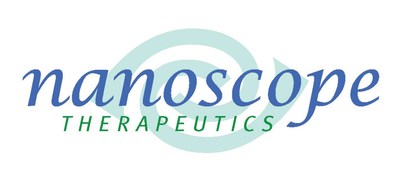To meet the advance challenge for generating a physiologically relevant three-dimensional (3D) retinal organoid, Nanoscope researchers® in collaboration with University of Colorado, and Miami University were recently awarded the top prize from the 3D-ROC challenge by the National Institute of Health (NIH).
|
BEDFORD, Texas, Feb. 2, 2021 /PRNewswire/ -- To meet the advance challenge for generating a physiologically relevant three-dimensional (3D) retinal organoid, Nanoscope researchers® in collaboration with University of Colorado, and Miami University were recently awarded the top prize from the 3D-ROC challenge by the National Institute of Health (NIH). https://www.nei.nih.gov/about/goals-and-accomplishments/nei-research-initiatives/3-d-retina-organoid-challenge-3-d-roc/2017-ideation-challenge/2017-ideation-winner-and-honorable-mention The organoids provide a unique opportunity for evaluating novel gene therapies including Multi-Characteristic Opsin (MCO) gene therapy for vision restoration. This is an active therapeutic development area for Nanoscope Therapeutics to evaluate effectiveness of MCO optogenetic therapy, which has shown promise in restoring sight in blind subjects. The opsin-based (and other gene therapy) treatment requires evaluation of potency in-vitro (for release characterization of drug) and objective clinical measurements. While we are currently using fluorescence imaging for objective measurement of potency of MCO-drug, there is a need for label-free evaluation of light activated activities in opsin-sensitized neurons. This is especially important because fluorescence methods inherently perturb the light-sensitive opsin-expressing neurons. "Nanoscope continue to develop breakthrough technologies to assess neural activities without use of excitation light (as used in fluorescence) and is currently working on implementing this approach for objective label-free detection of activities of natural photoreceptors of eye as well as opsin-sensitized cellular activities in response to light stimulation in-vivo," said Samarendra Mohanty, PhD, President and Chief Scientific Officer. For the 3D ROC challenge, Nanoscope used near-infrared light-based Optical Coherence Tomography (OCT) integrated with electro and opto-physiology device to measure both structure and function of layer-specific cells in the targeted regions of retina. This label-free activity detection technology has already attracted several Biopharmaceutical companies to evaluate their therapeutic approaches. "We are also advancing OCT guided targeted laser microirradiation technology for creating models of degenerative eye diseases such as Retinitis Pigmentosa (RP) and dry age-related macular degeneration (dry-AMD) as well as for targeted delivery of therapeutic genes," said Sulagna Bhattacharya, CEO of Nanoscope. About NANOSCOPE THERAPEUTICS Inc. Nanoscope Therapeutics is advancing gene therapy using light-sensitive MCO-molecules for giving sight to the millions of blind individuals suffering from retinal degenerative disease, for which no cure exists. Our pipeline includes optogenetics based retinal regeneration therapy for vision restoration in patients with RP, Stargardt disease, and dry-AMD. Contact: Sulagna Bhattacharya http://www.nanostherapeutics.com
SOURCE Nanoscope Therapeutics |





